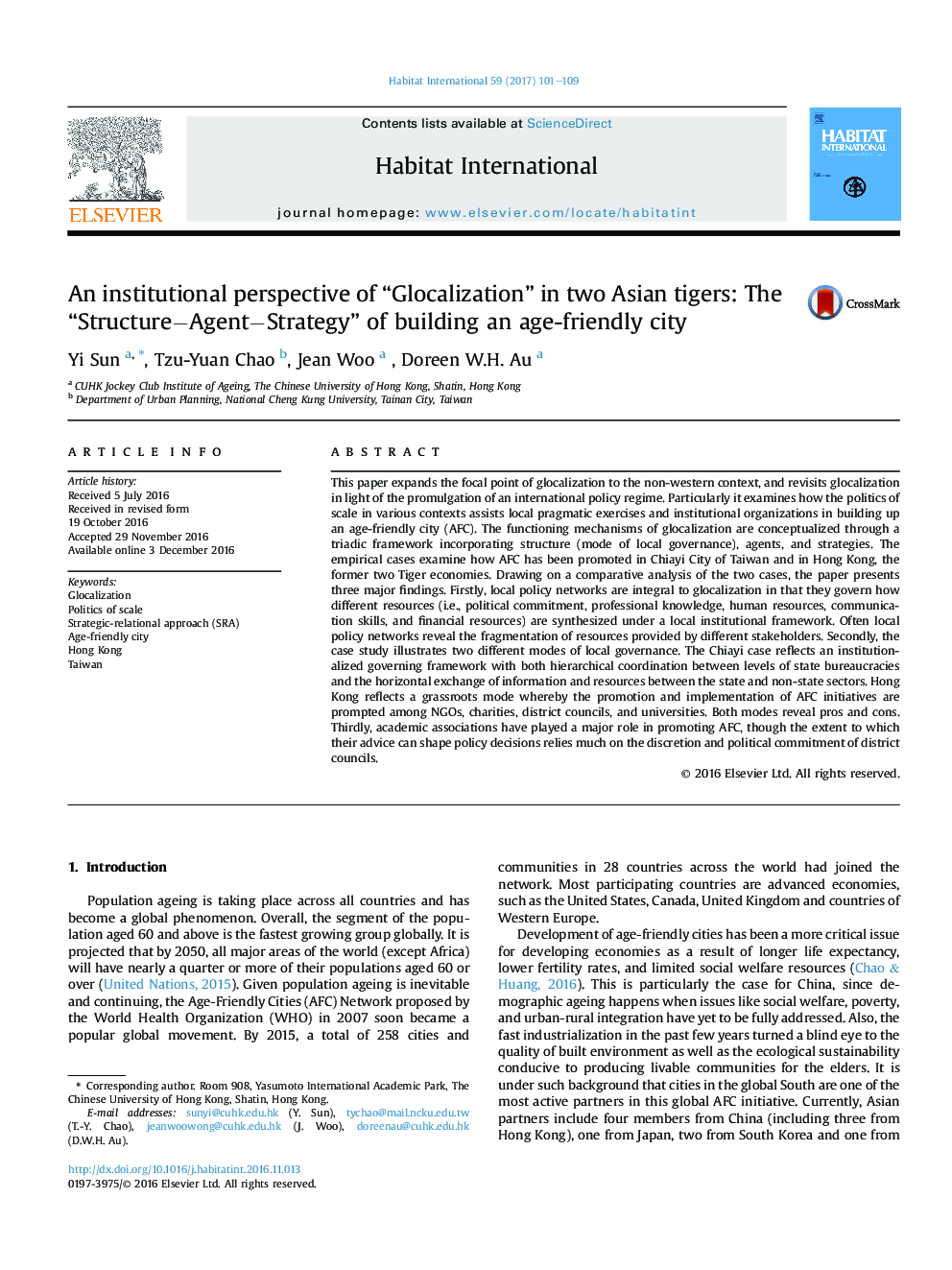| کد مقاله | کد نشریه | سال انتشار | مقاله انگلیسی | نسخه تمام متن |
|---|---|---|---|---|
| 5114703 | 1484485 | 2017 | 9 صفحه PDF | دانلود رایگان |
- This paper presents glocalization of age-friendly city project.
- “StructureâAgentâStrategy” framework is essential to global localization.
- Hong Kong and Chiayi City of Taiwan illustrates two modes of governance.
- University plays a role but is limited due to local state discretion.
This paper expands the focal point of glocalization to the non-western context, and revisits glocalization in light of the promulgation of an international policy regime. Particularly it examines how the politics of scale in various contexts assists local pragmatic exercises and institutional organizations in building up an age-friendly city (AFC). The functioning mechanisms of glocalization are conceptualized through a triadic framework incorporating structure (mode of local governance), agents, and strategies. The empirical cases examine how AFC has been promoted in Chiayi City of Taiwan and in Hong Kong, the former two Tiger economies. Drawing on a comparative analysis of the two cases, the paper presents three major findings. Firstly, local policy networks are integral to glocalization in that they govern how different resources (i.e., political commitment, professional knowledge, human resources, communication skills, and financial resources) are synthesized under a local institutional framework. Often local policy networks reveal the fragmentation of resources provided by different stakeholders. Secondly, the case study illustrates two different modes of local governance. The Chiayi case reflects an institutionalized governing framework with both hierarchical coordination between levels of state bureaucracies and the horizontal exchange of information and resources between the state and non-state sectors. Hong Kong reflects a grassroots mode whereby the promotion and implementation of AFC initiatives are prompted among NGOs, charities, district councils, and universities. Both modes reveal pros and cons. Thirdly, academic associations have played a major role in promoting AFC, though the extent to which their advice can shape policy decisions relies much on the discretion and political commitment of district councils.
Journal: Habitat International - Volume 59, January 2017, Pages 101-109
